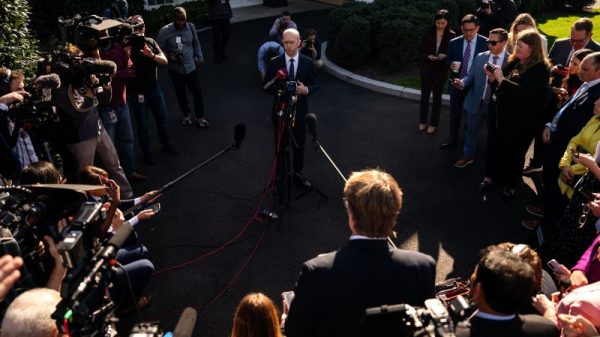Global markets are facing increased volatility as inflation data and ongoing tariff tensions add uncertainty. As a result, investors are closely watching economic indicators, knowing they could impact interest rates, global trade, and market stability.
Inflation Data Report and Market Expectations
The latest Consumer Price Index (CPI) report is set to reveal how inflation trends are evolving. According to analysts, a 0.3% monthly increase is expected. However, a higher figure could raise concerns about rising costs.
If inflation remains high, the Federal Reserve may delay interest rate cuts. Consequently, this could slow down economic growth.
On the other hand, if inflation slows, it could signal economic stabilization, thereby boosting market confidence.
Market strategist Charlie Ripley from Allianz Investment Management stated,
“Inflation remains a wildcard. Its impact on interest rates will shape the economic outlook. Therefore, investors must stay cautious.”
Tariff Tensions Add Pressure
In addition to inflation worries, the global markets trade landscape is becoming increasingly uncertain. Recently, President Donald Trump imposed new tariffs on Canada, Mexico, and China, intensifying trade tensions.
25% tariffs on Canadian imports, excluding energy, which faces 10% duties.
10% tariffs on all Chinese goods, impacting supply chains and businesses worldwide.
Meanwhile, China has challenged these tariffs at the World Trade Organization (WTO), arguing that they violate international trade laws. As a consequence, these disputes could increase costs for businesses and consumers alike.
Market Reactions and Investment Strategies
Due to these economic shifts, investors are reacting cautiously. The stock market remains volatile, while currency markets adjust to these ongoing uncertainties.
Since inflation is rising, investor confidence is slowly decreasing.
Moreover, trade conflicts could lead to higher consumer prices and supply chain disruptions.
A weaker global economy could eventually slow business growth and affect corporate profits.
Conclusion
Given the current economic climate, the combination of inflation risks and trade uncertainties is shaping global market trends. For this reason, investors must stay informed and adaptable. In the coming weeks, market conditions will reveal whether economic stability is attainable or if further disruptions will occur.
The post Tariff Tensions and Inflation Data Shake Global Markets appeared first on FinanceBrokerage.




























